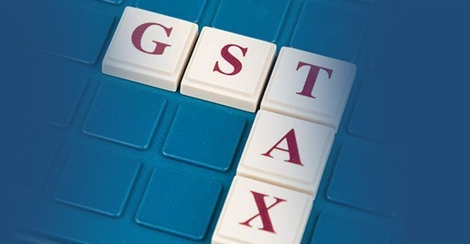The Goods Services Tax (GST), introduced with much fanfare in July 2017, is unraveling itself. The new tax regime, touted to be the biggest ever tax reform in independent India, has failed to meet the purposes it had promised to serve. Both the Centre, which had appropriated to itself a lion’s share of power in the GST Council, and the state governments, who had been silenced by the carrot of annual compensations of a hefty 14 per cent, have found themselves at a loss. So much so that the Union government last week threw up its hands, saying it cannot pay the compensations to states as it had promised, and state governments are free to borrow funds from the RBI. Little did the Centre say who will finally foot the bill. Many state governments like Kerala have proposed that the Centre should borrow on its own account and pass it on to states. The Centre has declined it. Exacerbated, some states like Maharashtra, Chhattisgarh and Pondicherry have threatened to go back to the pre-GST regime. The Centre has been so helpless that Union Finance Minister Nirmala Sitharaman has blamed it on God for the shortfall in revenue.
The GST system was flawed from the word go. The BJP, in its hurry to gain political advantage, pushed through the indirect tax regime and got state governments to sign onto it by offering them juicy carrots. During negotiations prior to the formal rollout of the GST, the Centre had promised to compensate states by 14 per cent. The logic was based on a calculation that the state revenue would grow at a rate of 14 per cent year-on-year. 2015-16 was taken as the base year to calculate the state’s annual revenue. Any gap between the 14 per cent growth projection and actual GST revenue would be met by the compensation. This would be financed by a special compensation cess levied over and above the GST on sin goods (for example tobacco and liquor) or luxury goods (for example SUVs). This promise had obviously silenced the most recalcitrant of the states opposed to the GST like Tamil Nadu. Then Gujarat Chief Minister Narendra Modi himself had opposed the GST during the UPA regime. However, the windfall of 14 per cent compensation had silenced all the critics of the new tax regime. States had bartered away their powers of taxation for the short term promise of increased revenue. The promise of this massive windfall, in fact, had encouraged many state governments like Odisha to splurge on populist schemes and elections.
The basic fault here was that the compensation for states should have been linked to actual economic growth instead of making the provision hard-wired. Now, state governments are not willing to climb back, nor the Union can renege on its promise. This is a real Gordian knot. The Centre cannot just wash its hands of its responsibility as it did in the GST Council meeting last Thursday. It was the Centre which had cajoled and forced state governments to sign on the GST and now when the chips are down it cannot just renege on its promise. The Covid-19 pandemic has ravaged the economy of every state government. Inasmuch as health is a state subject, the spending on this head due to the pandemic has skyrocketed in states. At this difficult time for them, the Centre cannot ask state governments to fend for themselves. The Centre may try to wriggle out of this mess by taking the plea that the compensation guarantee clause cannot be legally enforceable in courts. In January 2017, Karnataka had argued that the draft GST compensation be edited to guarantee that full compensation will be paid for full five years. To this the Centre had agreed that the compensation would be paid even if the cess falls short. The council had decided that the law should be amended. But this was not eventually done. When Telengana had asked why it was not being done, former Union Finance Minister Arun Jaitley – the main driver of the Act, had assured the states that compensation was guaranteed and the central government could raise resources by other means for compensation payout to states. This being the assurance, the Centre can’t leave it to state governments to meet revenue shortfall by way of loans from the RBI. The Union government, as a bigger partner of the federal system, should be forthcoming to underwrite the loans, and definitely not renege on its promise.




